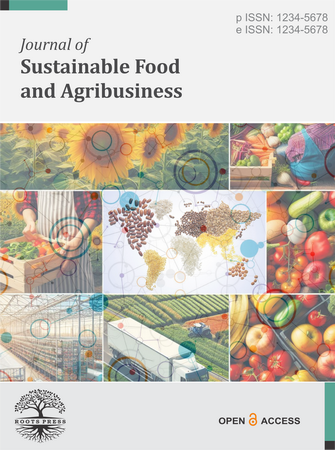The impact of agricultural loans on agricultural production
DOI:
https://doi.org/10.12345/foodsustainability.01.1.673Keywords:
Agricultural Credit, Agricultural Production, Agricultural Finance, Government SpendingAbstract
Protecting a country's agricultural sector from the uncertainty and shocks caused by climate change has depended heavily on the availability of loans. Agribusinesses and other commercial enterprises involved in farming may find it easier to reach international markets with the help of agricultural loans. In order to analyze the effects of agricultural loans on agricultural production immediately and over the long run, this study employs control variables, including FDI, inflation, and government expenditure. Our research shows that value-added agriculture benefits from agricultural credits in the long run. To be more precise, value-added agriculture will rise by 0.19 percent for every 1 percent increase in agricultural credits. Larger governments and foreign direct investment reduce agricultural value-added globally, but increasing agricultural sector loans dramatically enhances it. Results from pairwise causality tests confirm that almost all variables—including agricultural value-added, credit to agriculture, foreign direct investment, government expenditure, and inflation—have bidirectional causal linkages.
Downloads
Published
Issue
Section
License
Copyright (c) 2024 Journal of Sustainable Food and Agribusiness

This work is licensed under a Creative Commons Attribution 4.0 International License.


